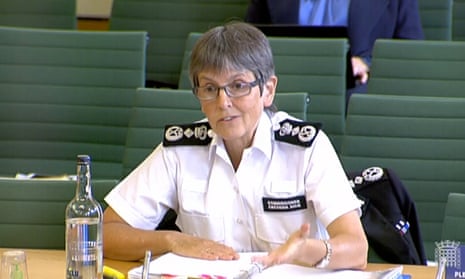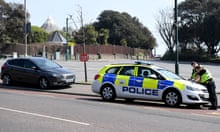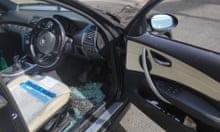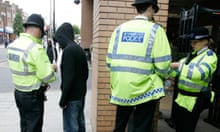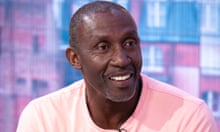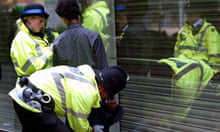Young black men were stopped and searched by police more than 20,000 times in London during the coronavirus lockdown – the equivalent more than a quarter of all black 15- to 24-year-olds in the capital.
More than 80% of the 21,950 searches between March and May resulted in no further action, according to analysis by the office of the home affairs select committee chair, Yvette Cooper.
The figures equate to 30% of all young black males in London, though some individuals may have been searched more than once.
The Met increased its use of stop and search during the lockdown, compared with a year ago. The force carried out 43,000 stops in May, compared to 21,000 a year earlier, and 30,608 in April, up from 20,981.
Katrina Ffrench, chief executive of Stopwatch, a charity that campaigns against the disproportionate use of stop and search, said: “The number is shocking and saddening. How do those young people feel when this is their city, they’re going about their daily business, could be caring for parents, all sorts of reasons as to why they’re out?”
The figures emerged after the commissioner for the Metropolitan police, Cressida Dick, apologised for the distress caused to the British athlete Bianca Williams when officers stopped, searched and handcuffed her at the weekend.
But Dick defended her force’s use of stop-and-search powers, saying black people were eight times more likely to be perpetrators of violent crime.
The committee heard that in May alone, about one in eight young black males in London were stopped and searched. Cooper said data showed 10,000 black males in London aged 15 to 25 were stopped and searched in May. Total population estimates for that demographic in London are between 70,000 and 80,000.
Cooper said: “That suggests in one month alone, more than one in 10 of young black men in London were stopped and searched and found to be carrying nothing and found not to be doing anything that required further action. That’s just in one month also at a time when actually most people would have been at home during lockdown.”
Asked if the figures alarmed her, Dick replied: “I’m not alarmed, I’m alert.”
Official figures show people who identify as black in England and Wales are nearly 10 times more likely to be stopped than people who identify as white. However, within some force areas, this is even higher: police in Dorset are 25 times more likely to stop black people than white people.
Dick told the committee that some of those searched and not found to have any illicit items were “very violent repeat offenders who happen not to have it there and then”.
“Some of them have stashed it, given it to the other boy or whatever. That’s a proportion of those people. Because what I can tell you is we’re focused in the right areas and focusing hugely on people that we know to be involved in violent crime.”
She said black people were not just disproportionately affected by stop-and-search powers but were more likely to be victims as well as perpetrators of violent crime in the capital. She said 72% of homicide victims under 25 were black, and that black people were four times more likely to be a victim of homicide and eight times more likely to be a perpetrator.
Ffrench added: “I feel saddened for young black boys that we’re in a time, in the 21st century, that your skin colour means you’re more prone to police interference.”
She said being subject to a stop-and-search was demeaning. “You feel like you don’t have a sense of belonging. If you did, you wouldn’t be treated this way. Many of these will be third-, fourth-generation British. Yet the police don’t treat you like you belong here.”
Nick Thomas-Symonds, the shadow home secretary, said: “These figures point to the significant levels of disproportionality we still see in our criminal justice system. That is why it is so important that there are sufficient levels of transparency and accountability with stop and search, including the publication of data, use of body-worn technology, and an effective complaints process for the incident when it is not carried out appropriately.
“During this crisis it is also vital that the police do not depart from the use of intelligence-led stop and search and continue to work to build trust in communities.”
A spokesperson for the Met police said: “There is disparity in the use of stop and search in relation to gender, age and race that also increases disproportionally the more the tactic is used.
“Crime, however, is not proportionate either, and different crimes affect different groups – the root causes of which are complex.
“Tragically, knife crime and street violence in London disproportionately affects boys and young men, particularly of African-Caribbean heritage, both in terms of victims and perpetrators.”
The force said it believed a more accurate measure of disproportionality is the so-called “positive outcome” rate – that is the proportion of stop and searches that identify criminality.
Over the rolling 12-month period to 31 May, the four main ethnic groupings all showed similar positive outcome rates – white 24%; black 21%; Asian 22%; other 22%.
